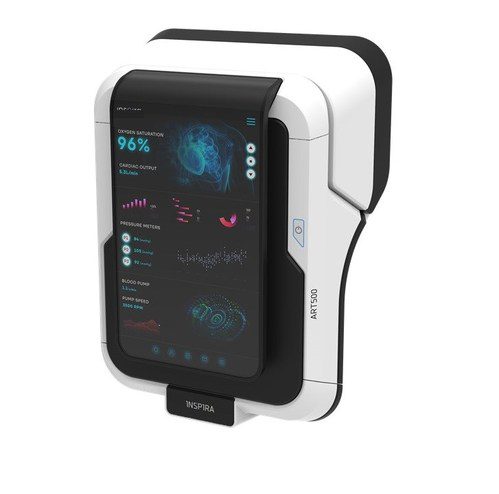Inspira Technologies Oxy B.H.N. Ltd. (Nasdaq: IINN, IINNW), a breakthrough respiratory medical technology leader, announced today the completion of a development relating to the potential prevention of blood clotting when used in conjunction with its Augmented Respiration Technology (ART) system. The platform is intended to be integrated into the company’s novel ART system, which is currently in its development phase.
The use of anticoagulants for preventing blood clotting during invasive oxygen therapy is standard procedure, despite these drugs posing a high risk. In some cases, anticoagulant medicines increase a person’s risk of life-threatening bleeding in different locations, such as the brain or gastrointestinal tract.
With the potential new platform, created in collaboration with Ben-Gurion University, the company aims to extend the life of oxidizers and potentially prevent blood clotting through its ART system. The research and development process was led by Prof. Joseph Kost, from the Department of Chemical Engineering (Past Dean of the Faculty of Engineering Sciences) at Ben-Gurion University.
Inspira and Prof. Kost have developed and characterized a stable polymeric microbubbles (MBs) platform that releases oxygen on demand. The development process required in-depth research to evaluate the procedures for oxygen engulfment in MBs and observe oxygen release at the required rates. This novel proposed technology will be further developed with the aim to integrate it into the ART system, with the view of making it suitable as a dialysis machine and compatible with other blood oxidation systems.
Prof. Kost describes the platform: “The platform is based on polymeric microbubbles MBs with a gas core, made from a PLGA shell (a biocompatible polymer), synthesized by a modified double emulsion solvent evaporation method”.
Dr. Udi Nussinovitch, MD, Ph.D., Co-Founder and CSO of Inspira, said: “I believe that Inspira is developing groundbreaking technology from a medical device and biotechnological perspective. The joined technologies are intended to use innovative molecular approaches and novel oxygenation methods that have the potential to improve patients’ outcomes.”
